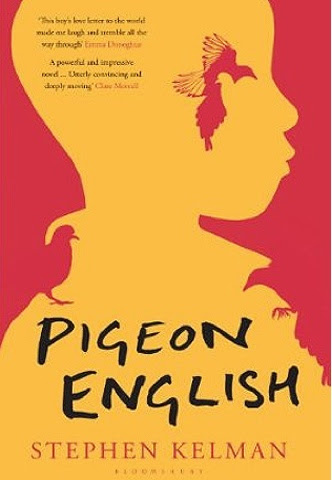Sunday 15 June 2014
The Reluctant Fundamentalist - Mohsin Hamid
Thursday 29 May 2014
A Meeting with a difference
Sunday 4 May 2014
The Lacuna - Barbara Kingsolver
About the Author:Barbara Kingsolver is an American novelist, essayist and poet. She was raised in rural Kentucky and lived briefly in the Congo in her early childhood. Her work often focuses on topics such as social justice, biodiversity and the interaction between humans and their communities and environments. The Lacuna is Barbara Kingsolvers first novel for fifteen years for which she won the Orange Prize for Fiction in 2010.
The plot takes us us on a journey from the Mexico City of artists Diego Rivera and Frida Kahlo to the America of Pearl Harbor, FDR, and J. Edgar Hoover. "The Lacuna" is a poignant story of a man pulled between two nations as they invent their modern identities. The story evolves from the letters which had been securely stored of Harrison Shepherd, a son of an American Business man and a Mexican good time girl. Harrison spent most of his early childhood in Mexico and was educated in the US. Indeed the novel is in two distinct books. He returned to Mexico and developed friendship with Frieda Kahlo and Diego Rivera. His friendship with Frieda is lifelong. Harrison goes to work for Lev Trotsky and develops an interest in Aztec Art. The artist Frieda smuggles her own paintings out of Mexico via Harrison when he leaves to settle in the mid west and becomes a successful novelist. The story focuses on the rise of McCarthyism and the routing out and persecution of those who were deemed to be a threat to US security by having Communist associations.
Most of the group enjoyed the subject of the first part of the book regarding life in Mexico and they extended their interest into watching the film Frieda as the artist. Some of the group considered Harrison as a bit of a non character, his journals are descriptive as if observing from a distance but not taking part. Frieda fantasises about him, and in later life his secretary, who recovers the journals and writes his story after his death, is in love with him and is truly besotted but this is not acknowledged or even recognised by Harrison Shepherd. Only a few picked up on the fact that he was homosexual, it was skilfully and slowly revealed. Most of the group enjoyed the book however it was felt generally long. Some of the plot was considered a bit far fetched such as his relationship with Trotsky. Some of the group commented on the apparent paranoia regarding Communist infiltration in Us at the time that was driving McCarthyism and how district ice and brutal that this regime was.
Kingsolver herself describes a 'lacuna' as a gap, and a writer fills the gap that is created where there are some facts but the full picture is missing. A novelist will fill the ' lacuna' to complete the story, this is what Kingsolver has done in The Lacuna, using beautiful language, skillful story telling through the development of strong characters. She does just that.
The next read is:
When I Die by Philip Gould
The Strangest Man - Graham Farmelo
The Continental Op - Dashiel Hamnett
.
Saturday 26 April 2014
Edmund de Waal - The Hare with the Amber Eyes
The Ephussis lost almost everything in 1938 when the Nazis "Aryanized" their property.[1] Even after the war, the family failed to recover most of its extensive property, including priceless artwork, but an easily hidden collection of 264 Japanese netsuke miniature sculptures was miraculously saved, tucked away inside a mattress by Anna, a loyal maid at Palais de Ephussis in Vienna during the war years. The collection has been passed down through five generations of the Ephussis family, providing a common thread for the story of its fortunes from 1871 to 2009.
Julian Barnes -Flaubert's Parrot
Stephen Kelman - Pigeon English
Katherine Mansfield - The Garden Party
Joseph Conrad - Heart of Darkness
Marlow speaks much of the darkness and in some ways the group felt that this implies that Kurtz's insanity was caused by the knowledge that the natives were naturally subservient or savages. Because of their perceived lower state of their, Kurtz was led to enact his position of power and that is how he lost his humanity. Some of the treatment of the natives was brutal and severe with many of the lucid descriptive passages difficult to read because of their vivid description.













